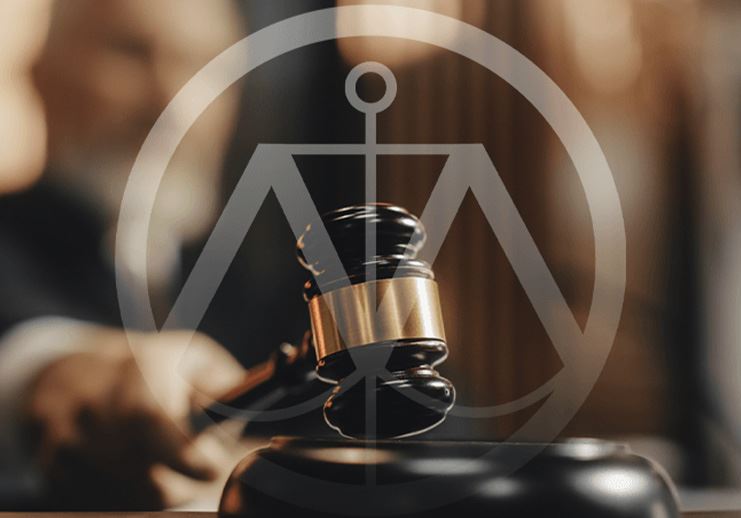Third-Degree Assault
Third-degree assault is described in RCW § 9A.36.031. It occurs when someone inflicts harm upon another individual through an act of criminal negligence. It also applies to crimes that involve the assault of:
- Law enforcement officials
- Firefighters
- Public transportation workers
- School transit operators
- Judicial officers
- Healthcare providers
Assault in the third degree is considered a Class C felony punishable by:
- Up to $10,000 in fines
- Up to 5 years in prison
Fourth-Degree Assault (Simple Assault)
Under RCW § 9A.36.041, fourth-degree assault (also referred to as simple assault) is the only assault charge that is not automatically a felony. Instead, simple assault is a misdemeanor that entails unwanted touching, such as:
- Intentionally touching or striking someone in a harmful or offensive manner
- Attempting to inflict injury upon another person
- Committing an act that intentionally places a person in apprehension of harm
Assault in the third degree is considered a gross misdemeanor punishable by:
- Up to $5,000 in fines
- Up to 1 year in prison
It’s crucial to understand that a simple assault charge can be enhanced to a felony under certain conditions, such as:
- If the assault resulted in serious bodily harm
- If the victim is aged 13 years or younger
- If the victim belongs to a protected class
Related Offenses
When it comes to assault and battery in Washington State, it’s important to be aware of other related offenses you can be charged with. These include (but aren’t limited to):
Reckless Endangerment
RCW § 9A.36.050 describes the crime of reckless endangerment as “recklessly engaging in behavior that creates a risk of death or substantial physical injury to another person.” Note that the prosecution is not required to prove that the defendant acted intentionally, as intent to cause harm isn’t needed to be convicted of reckless endangerment.
This offense is considered a gross misdemeanor punishable by:
- Up to $5,000 in fines
- Up to 1 year in prison
Domestic Violence
Assault and reckless endangerment between household members are considered domestic violence crimes under RCW § 10.99.020.
A “household member” is a legal term that refers to certain people who share a relationship with the defendant, including:
- A spouse (former or current)
- A domestic partner (former or current)
- A person with whom the defendant shares a child (regardless of marital status or cohabitation)
- Adults related by blood or marriage
- A child of the defendant
- A person with whom the defendant is romantically involved and lives with (or used to live with)
Washington law defines domestic violence as committing a violent or threatening crime (such as rape, assault, stalking, trespassing, or burglary) against a family or household member.
Unlike in other states, it’s worth noting that if a person is charged with assault in Washington, the court will not enhance the severity of penalties if the assault was an act of domestic violence (committed against a household member). However, the defendant may be required to pay a special fine.
Can I be charged with assault if no injury occurred?
Yes. Under Washington law, a defendant can be charged with assault if unwanted physical contact occurred, regardless of whether or not the offensive contact resulted in injury.
Can I be charged with assault if I was acting in self-defense?
Self-defense can be an effective legal strategy to defend yourself in court. However, it’s absolutely crucial to discuss this with a trusted criminal defense attorney beforehand, as the last thing you want to do is jeopardize your chance to obtain a favorable outcome.
Regardless of why the assault occurred, it’s safe to assume a conviction is possible—even if you acted in self-defense. The outcome of your case likely won’t depend on which defense you choose; rather, it will depend on how well you and your lawyer can argue the defense strategy.
The results of your case can also be impacted by the quantity of evidence that supports your stance, the quality of that evidence, and whether that evidence is effectively presented to the court. An experienced criminal defense attorney can assess the details of your case and recommend the best legal route to take to successfully reduce or dismiss the charges you’re up against.
Are the odds against me if I’ve been charged with assault?
No case is lost until the gavel drops. While criminal court proceedings can be nerve-racking, especially considering the severity of penalties a defendant will face if convicted, it’s completely possible to emerge unscathed after finding yourself on the wrong side of the law.
Securing reliable legal representation is non-negotiable if you have a hope of obtaining a positive outcome in court. Without a skilled criminal defense attorney in your corner to defend your rights, you risk being unfairly convicted, as this can offer the prosecution an opportunity to construct a one-sided case against you.
There are various benefits to hiring a legal professional to defend you in court, including (but not limited to):
- They can help uncover evidence that is favorable to your case.
- They can demand the removal of inappropriate evidence (such as proof that was obtained in violation of your amendment rights).
- They can fact-check police reports and cross-examine witnesses.
- In worst-case scenarios, they can negotiate a plea deal or reduce charges to be less severe.
- They can recommend the best legal strategy to build you the strongest defense possible.
How to Defend Against Assault Charges
If you’ve been charged with assault in Washington, there’s no need to abandon hope. There are various strategies to defend against violent crimes like assault and battery. Keep in mind that a qualified criminal defense attorney will be your best resource to determine which defense will be most effective for your case.
Consider these common defenses against assault charges:
- Self-defense or defense of others. This is one of the most common defenses against a violent crime, as it argues that your actions were necessary to protect the safety of yourself or others. For this strategy to be successful, you must prove that 1) a genuine threat or unlawful force was used against them; 2) the threat or force would cause a reasonable person to fear for their safety; 3) there was no harm or provocation on your part, and 4) the force you used in self-defense is reasonable in relation to the force used by the victim.
- Defense of property. If you assaulted a person to protect your property or home, this may be an adequate strategy to defend your actions.
- Consent. If a victim voluntarily consented to your actions prior to the assault charge, this may lead to reduced or dismissed charges.
- Duress. This defense argues that your conduct, although criminal under ordinary circumstances, was something you were forced to engage in by threat or immediate use of physical force that would have resulted in bodily harm or injury.
- Lack of mental state. This defense argues that you were not in your right state of mind and acted unknowingly or unintentionally when you committed the offense.
Our Firm Is Here to Restore Your Freedom
McAvoy Law, PLLC is committed to protecting the rights of citizens in Lynnwood, Edmonds, Kirkland, and surrounding counties. If you've been charged with assault, immediate action is required if you wish to protect your future.
Even minor criminal charges can have a drastic impact on your life, as a single conviction can threaten your employability, financial security, relationships, and reputation. If you’ve been arrested in Washington, it’s crucial to seek support from a skilled criminal defense lawyer who will advocate tirelessly on your behalf.
Our founding attorney Kimberly McAvoy is a former prosecutor who uses her former experience to better the lives of her clients and their families. Our compassionate team of legal professionals is here to provide the personalized representation and customized legal solutions you rightfully deserve. When it comes to the rest of your life, don't settle for a mediocre defense. Put your trust in a firm with a proven track record of real results.
Being convicted of a violent crime can result in life-altering consequences and prison time. Don’t throw away your future by failing to prepare. Call (425) 374-0761 or contact us online today to schedule a free consultation.

